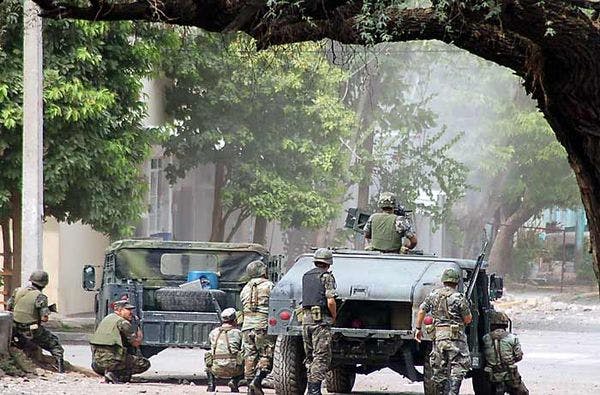Exdirigentes latinoamericanos instan a la comunidad internacional a poner fin al ‘desastre’ de la guerra contra las drogas
Expresidentes de Brasil, Colombia y México han escrito un artículo sobre las “políticas de drogas obsoletas” en el que denuncian a la ONU de secretismo en torno a la sesión especial sobre drogas. Más información, en inglés, está disponible abajo.
Suscríbase a las Alertas mensuales del IDPC para recibir información sobre cuestiones relacionadas con políticas sobre drogas.
By Alan Yuhas
Three former presidents of Latin American nations have urged the world to end the “unmitigated disaster” of the war on drugs, and denounced the United Nations for secrecy and shortsightedness ahead of the first special assembly on drugs in 18 years.
“Outdated drug policies around the world have resulted in soaring drug-related violence, overstretched criminal justice systems, runaway corruption and mangled democratic institutions,” wrote Fernando Henrique Cardoso, César Gaviria and Ernesto Zedillo, respectively the former presidents of Brazil, Colombia and Mexico, in an op-ed in the Los Angeles Times.
The former presidents said that experts, statistics and a review of their “own failures on this front while in office” led them to “an unavoidable conclusion: the ‘war on drugs’ is an unmitigated disaster”.
While in office in the 1990s, the three leaders fought the drug trade by the usual, often violent, methods. Cardoso tried to eradicate marijuana production in Brazil, Zedillo began war against Mexican cartels that exploded in the second half of the decade, and Gaviria fought Pablo Escobar’s cocaine empire.
Escobar tried to assassinate Gaviria in a plane bombing, and the president’s administration killed the drug lord in 1993, a killing that Gaviria called “a step toward the end of drug trafficking” and proof “it is possible to defeat evil”.
But the three ex-presidents have spent the 2000s calling for decriminalization and regulation of drugs, and in 2009 Cardoso wrote for the Observer that decriminalization “breaks the silence about the drug problem”. Drugs are “not first and foremost a matter for the criminal justice system”, he wrote. “Repressive policies towards drug users are firmly rooted in prejudice, fear and ideological visions, rather than in cold and hard assessment of the realities of drug abuse.”
While the three hailed the UN for holding an assembly on drug abuse on 19 April, they excoriated its methods in Friday’s op-ed. “What was supposed to be an open, honest and data-driven debate about drug policies has turned into a narrowly conceived closed-door affair,” they wrote.
The UN has blocked the majority of member states and various health and human rights groups from participating, according to the leaders, and the drafted declaration “perpetuates the criminalization of producers and consumers” rather than moving toward treatment for addicts.
Cardoso, Gaviria and Zedillo instead call for all UN nations to “end the criminalization and incarceration of drug users”, and to abolish capital punishment for related offenses: “It is a medieval practice that should be stamped out once and for all.”
Click here to read the full article.
Keep up-to-date with drug policy developments by subscribing to the IDPC Monthly Alert.
Thumbnail: Wikipedia
